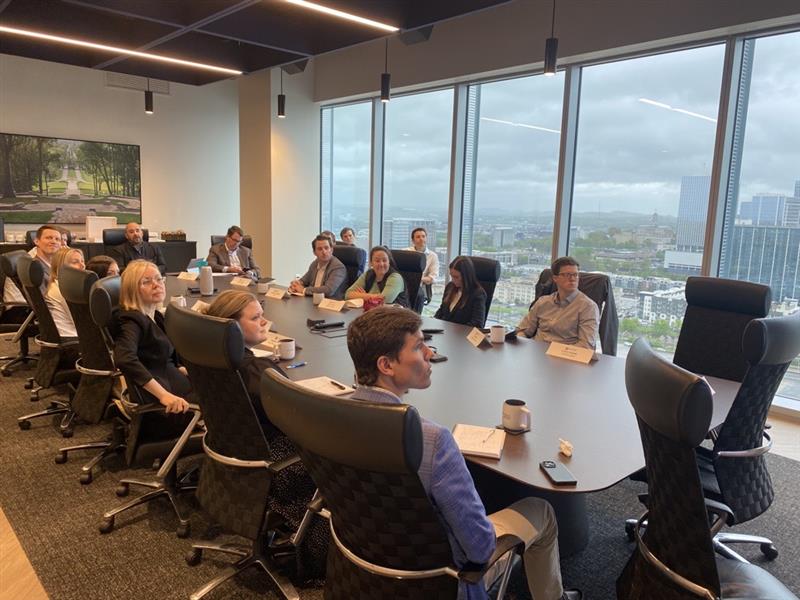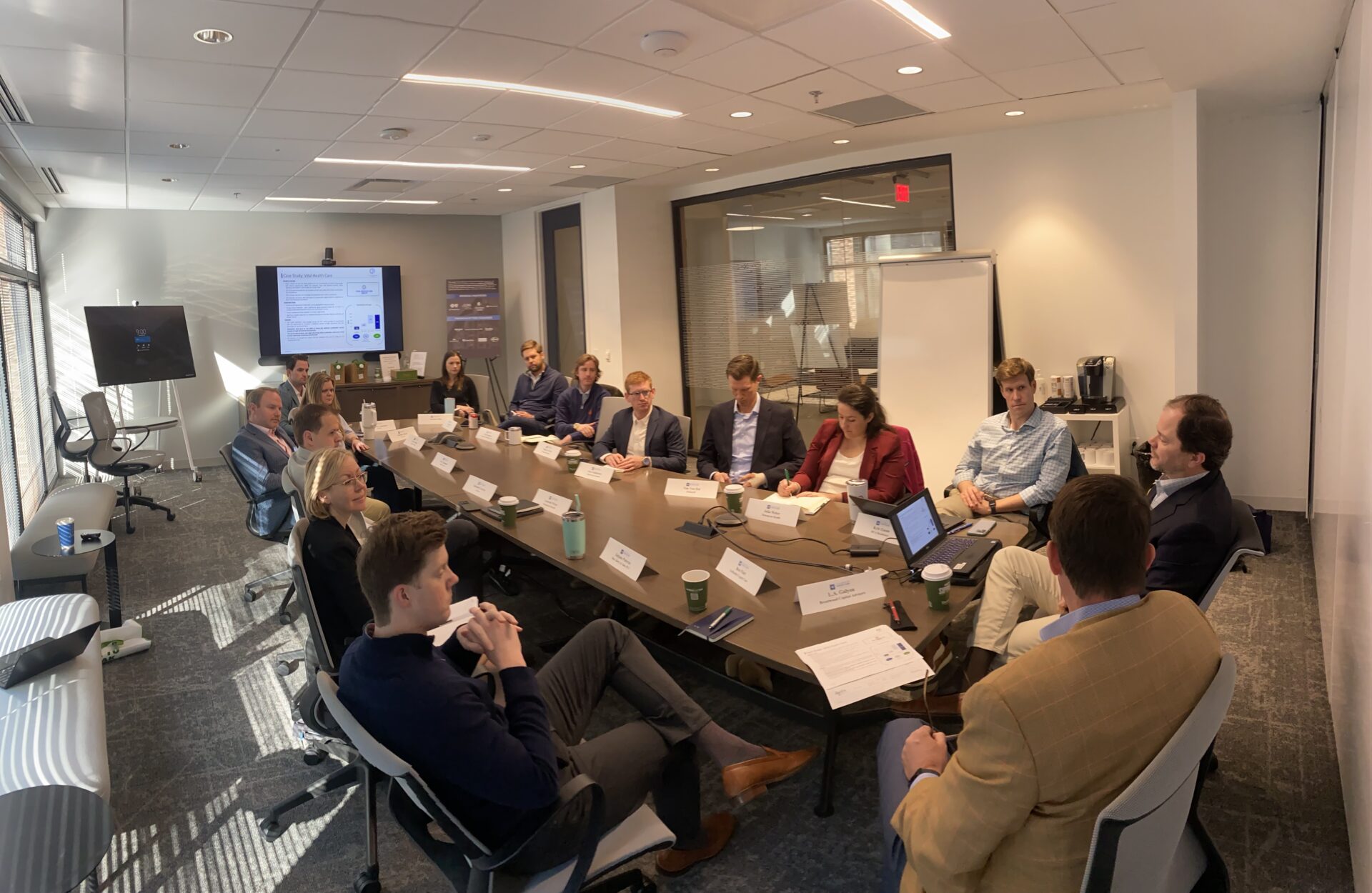Navigating Leadership and Growth in Healthcare with Private Equity
Leadership Health Care (LHC) Cohorts provide members the opportunity to participate in a peer mentoring program facilitated by an experienced healthcare executive. Throughout six cohort sessions, participants discuss substantive topics around a common focus area to enhance their knowledge and leadership skills.
Mentor, L.A. Galyon, Managing Partner at Brentwood Capital Advisors, lead discussions that take a deep dive into the different facets of the private equity industry, the latest macro private equity healthcare trends, and how private equity financing plays into today’s markets.
J.R. Greene Shares Insights With LHC Private Equity Cohort
On June 12th, J.R. Greene, CEO of Psychiatric Medical Care (PMC) joined the LHC Private Equity Cohort hosted by L.A. Galyon to discuss his journey to become the leader of PMC, finding the right private equity partner, and the lessons he learned along the way.
J.R. shared the path he took to become CEO of PMC. After completing his undergraduate degree at Texas Christian University and achieving his MBA from the University of Tennessee, J.R. spent the early part of his career at Procter & Gamble (P&G), followed by a period at REVLON where he grew to become the director of global marketing. However, following an offer that his dad received to become the chair of psychiatry at the University of Tennessee, J.R. was presented with the opportunity to run his father’s business, Psychiatric Medical Care (PMC), which partners with hospitals to manage outpatient psychiatric programs in their facilities.
Upon J.R.’s arrival as CEO of PMC in 2010, the company was not making a profit. He spent his first two years at PMC studying the ins and outs of healthcare. One stark difference J.R. observed was that with consumer goods companies like Coca Cola, P&G and REVLON, consumers made purchasing decisions with their own dollars, but "healthcare is completely different.” This observation helped J.R. learn the healthcare business infrastructure that allowed him to develop a business model in behavioral health that offered incredible care and provided financial stability for the business.
As PMC became profitable and scaled its business over the next 14 years it grew to more than 250 locations across 38 States. J.R. highlighted that the company’s mission has stayed the same and that PMC’s success came from focusing on one major thing – hiring accountable and kind people.
“You need to make sure to find the key people to build and grow a business to maximize your skillset at different levels,” Greene said.
As PMC approached $1 million in EBITDA, the company began garnering interest from private equity firms and strategic buyers. One defining element that helped PMC enter the recapitalization process in 2018 was when J.R. acquired a majority stake in the company. J.R.’s decision to begin the recapitalization process significantly impacted PMC’s growth as he stressed that companies can get left behind if they’re not working with a “strategic corp.” or a private equity partner.
After being approached by several firms and buyers and receiving guidance from cohort mentor L.A. Galyon throughout the process, PMC chose to sell a portion of its business to Consonance Capital because of its valuable background and experience in healthcare. J.R. acknowledged Nancy-Ann DeParle as a key factor in PMC’s decision to work with Consonance Capital. Since going under the private equity umbrella, PMC’s board of directors has matured into a Fortune 500-level board that has contributed to the company’s continued success over the last six years.
Q&A With J.R. Greene
How does running a PE-backed business look different than running as a founder?
J.R. expressed gratitude for his background in understanding syndicated models through Proctor & Gamble, Coke, and Revlon. Once Consonance Capital provided the PE-backing, they brought in swim-lanes that helped PMC have a structure, system, and benefits.
How has the growth strategy changed and evolved?
PMC’s mission has remained the same, while its strategy evolved. Initially, Consonance Capital was in a hyper acquisition mode. Within six months, PMC bought a telehealth company and had planned to buy three more companies before the 2020 pandemic hit, but instead we halted all M and A for three years. Since their recap, and initial acquisition, they have primarily grown through De Novo strategies.
As you think about a transaction and the company’s next recap, how is your mindset different today than when it was when you were a founder?
Fortunately, I don’t believe there is a difference, as PMC continues to focus on providing the best possible clinical care and developing the infrastructure to scale our service lines while delicately determining other care models we can start, adopt, or acquire within our network. We remain focused on growth.
The Next Generation of Healthcare Leaders
Leadership Health Care’s mission is to cultivate talented healthcare professionals into the industry leaders of tomorrow. LHC aims to provide young professionals with ongoing opportunities to develop their knowledge of the healthcare industry through educational events and networking opportunities. Fill out this form to learn more about LHC.


